Cleaver Magazine Reviews Books In Translation

WAR, SO MUCH WAR by Mercè Rodoreda TRISTANO DIES by Antonio Tabucchi A GENERAL THEORY OF OBLIVION by José Eduardo Agualusa THE THINGS WE DON’T DO by A...
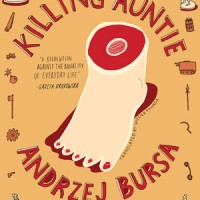
KILLING AUNTIE by Andrzej Bursa reviewed by Jacqueline Kharouf

THE LITTLE TOWN WHERE TIME STOOD STILL by Bohumil Hrabal reviewed by Nathaniel Popkin
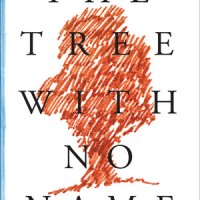
THE TREE WITH NO NAME by Drago Jançar reviewed by Justin Goodman
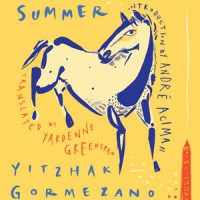
ALEXANDRIAN SUMMER by Yitzhak Gormezano Goren reviewed by Justin Goodman

I REFUSE by Per Petterson reviewed by Claire Rudy Foster

33 DAYS by Léon Werth reviewed by Nathaniel Popkin

ASHES IN MY MOUTH, SAND IN MY SHOES by Per Petterson reviewed by Rory McCluckie

THE SEA by Blai Bonet reviewed by Nathaniel Popkin
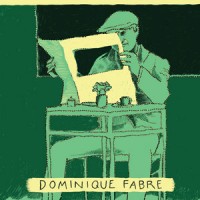
GUYS LIKE ME by Dominique Fabre reviewed by Nathaniel Popkin

TESLA: A PORTRAIT WITH MASKS by Vladimir Pištalo translated by Bogdan Rakic and John Jeffries reviewed by Rory McCluckie
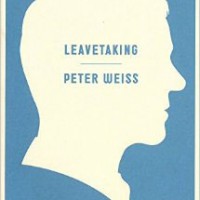
LEAVETAKING by Peter Weiss reviewed by Claire Rudy Foster
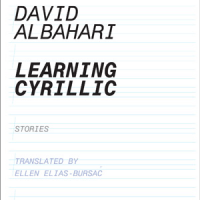
LEARNING CYRILLIC by David Albahari reviewed by Jon Busch
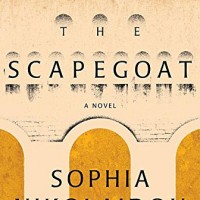
THE SCAPEGOAT by Sophia Nikolaidou reviewed by Nathaniel Popkin

THE DOOR by Magda Szabó reviewed by Claire Rudy Foster

A QUESTION OF TRADITION: WOMEN POETS IN YIDDISH by Kathryn Hellerstein reviewed by Alyssa Quint
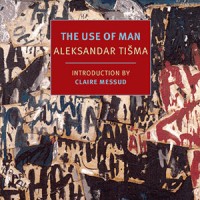
THE USE OF MAN by Aleksandar Tišma reviewed by Jamie Fisher
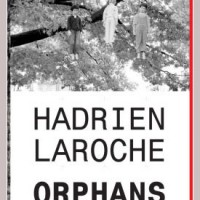
ORPHANS by Hadrien Laroche reviewed by Jamie Fisher

ON THE ABOLITION OF ALL POLITICAL PARTIES by Simone Weil, translated by Simon Leys reviewed by Ana Schwartz

Bolaño: A BIOGRAPHY IN CONVERSATIONS by Mónica Maristain reviewed by Ana Schwartz

PANIC IN A SUITCASE by Yelena Akhtiorskaya reviewed by Michelle Fost

THE WOMAN WHO BORROWED MEMORIES by Tove Jansson reviewed by Jamie Fisher
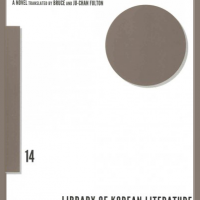
ANOTHER MAN’S CITY by Choe In-Ho reviewed by Claire Rudy Foster
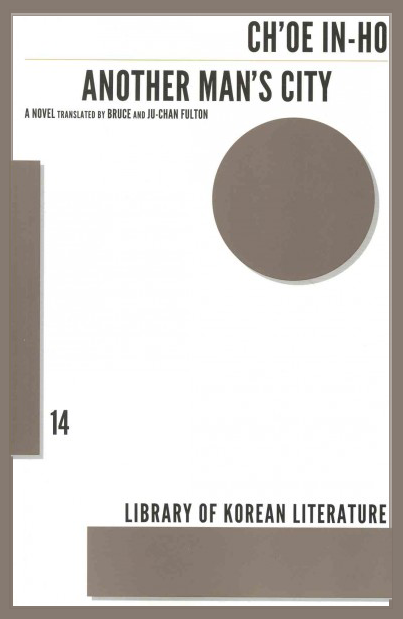 ANOTHER MAN'S CITY by Choe In-Ho translated by Bruce and Ju-Chan Fulton Dalkey Archive (Library of Korean Literature), 190 pages reviewed by Claire Rudy Foster As I'm writing this, the rain is beginning. The spattering sounds of drops hitting the fat, broad maple leaves on the tree outside my window catch my ear like static. The rain turns on the rich, dirt smell of the ground and dampens the sound of passing traffic. My neighbor, who plays the piano for the Portland Opera, is practicing some Brahms and singing out the notes as he plays them. This is ...
ANOTHER MAN'S CITY by Choe In-Ho translated by Bruce and Ju-Chan Fulton Dalkey Archive (Library of Korean Literature), 190 pages reviewed by Claire Rudy Foster As I'm writing this, the rain is beginning. The spattering sounds of drops hitting the fat, broad maple leaves on the tree outside my window catch my ear like static. The rain turns on the rich, dirt smell of the ground and dampens the sound of passing traffic. My neighbor, who plays the piano for the Portland Opera, is practicing some Brahms and singing out the notes as he plays them. This is ...
JOURNEY BY MOONLIGHT by Antal Szerb reviewed by Nathaniel Popkin
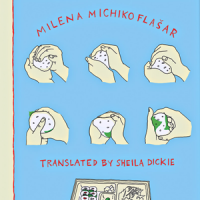
I CALLED HIM NECKTIE by Milena Michiko Flašar reviewed by Nathaniel Popkin

THE SEARCH FOR HEINRICH SCHLÖGEL by Martha Baillie reviewed by Jamie Fisher

HARLEQUIN’S MILLIONS by Bohumil Hrabal and WHO IS MARTHA? by Marjana Gaponenko reviewed by Michelle E. Crouch
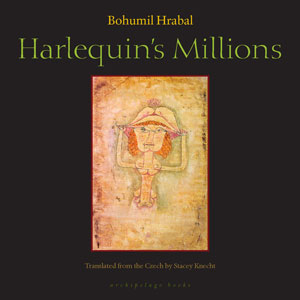
 HARLEQUIN’S MILLIONS by Bohumil Hrabal translated by Stacey Knecht Archipelago Books, 312 pages WHO IS MARTHA? by Marjana Gaponenko translated by Arabella Spencer New Vessel Press, 216 pages reviewed by Michelle E. Crouch We had grown old, yet we were still the same as we’d been when the war ended, I had moved even further back, to the last century, which had risen for me from the dead. This retirement home with its Baroque halls and garden, this castle in which I lived, suddenly meant more to me than that golden brewery of mine, where I had spent ...
HARLEQUIN’S MILLIONS by Bohumil Hrabal translated by Stacey Knecht Archipelago Books, 312 pages WHO IS MARTHA? by Marjana Gaponenko translated by Arabella Spencer New Vessel Press, 216 pages reviewed by Michelle E. Crouch We had grown old, yet we were still the same as we’d been when the war ended, I had moved even further back, to the last century, which had risen for me from the dead. This retirement home with its Baroque halls and garden, this castle in which I lived, suddenly meant more to me than that golden brewery of mine, where I had spent ...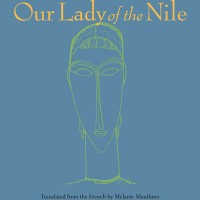
OUR LADY OF THE NILE by Scholastique Mukasonga reviewed by Nathaniel Popkin
You remember what they used to tell us in catechism: God roams the world, all day long, but every evening He returns home to Rwanda. Well, while God was traveling, Death took his place, and when He returned, She slammed the door in his face. Death established her reign over Rwanda. She has a plan: she’s determined to see it through ...

MY STRUGGLE: BOOK THREE: BOYHOOD by Karl Ove Knausgaard translated by Dan Bartlett reviewed by Ana Schwartz
Pot of Gold at the End of the Rainbow
If all one reads is Proust, it might be easy to forget that some young boys—a lot of young boys—are really fascinated with the body and its messy, abject creations: excrement, urine, semen, saliva. What a relief to see that Karl Ove Knausgaard is, at least in this respect, less Proustian than the great hubbub would have it. You have probably have heard of his six-volume memoir-novel, ...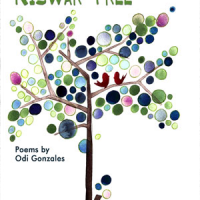
BIRDS ON THE KISWAR TREE by Odi Gonzalez translated by Lynn Levin reviewed by J.G. McClure

CONVERSATIONS by César Aira reviewed by Ana Schwartz
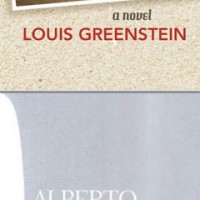
AGOSTINO by Alberto Moravia and MR. BOARDWALK by Louis Greenstein reviewed by Nathaniel Popkin
 AGOSTINO by Alberto Moravia translated by Michael F. Moore NYRB Classics, 128 pages MR. BOARDWALK by Louis Greenstein New Door Books, 316 pages reviewed by Nathaniel Popkin
AGOSTINO by Alberto Moravia translated by Michael F. Moore NYRB Classics, 128 pages MR. BOARDWALK by Louis Greenstein New Door Books, 316 pages reviewed by Nathaniel Popkin MUSEUMS OF INNOCENCE In September 1980, military officers took over the Turkish government. Soldiers arrested 500,000 people, executed some of them, and installed martial law. Ultimately, the coup ended years of political and economic instability, but most remarkably it led to Turkey’s integration into the global economy, and eventually its status as an emergent power. Gone were days of economic and cultural isolation—a shared national innocence that novelist Orhan Pamuk ...
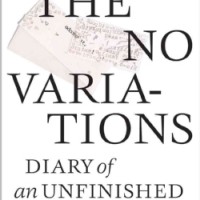
THE NO VARIATIONS: THE DIARY OF AN UNFINISHED NOVEL by Luis Chitarroni reviewed by Ana Schwartz

THE GRAVEYARD by Marek Hłasko reviewed by Nathaniel Popkin
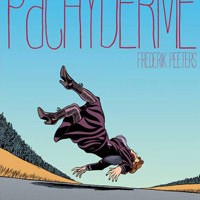
PACHYDERME by Frederik Peeters reviewed by Brazos Price
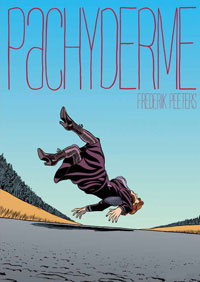 PACHYDERME by Frederik Peeters translated from the French by Edward Gauvin Harry N. Abrams Press SelfMadeHero imprint, 88 pages Reviewed by Brazos Price A cinematic opening: a woman’s heeled boot, a 1950’s traffic jam in bucolic Romandie, a downed elephant.
PACHYDERME by Frederik Peeters translated from the French by Edward Gauvin Harry N. Abrams Press SelfMadeHero imprint, 88 pages Reviewed by Brazos Price A cinematic opening: a woman’s heeled boot, a 1950’s traffic jam in bucolic Romandie, a downed elephant. 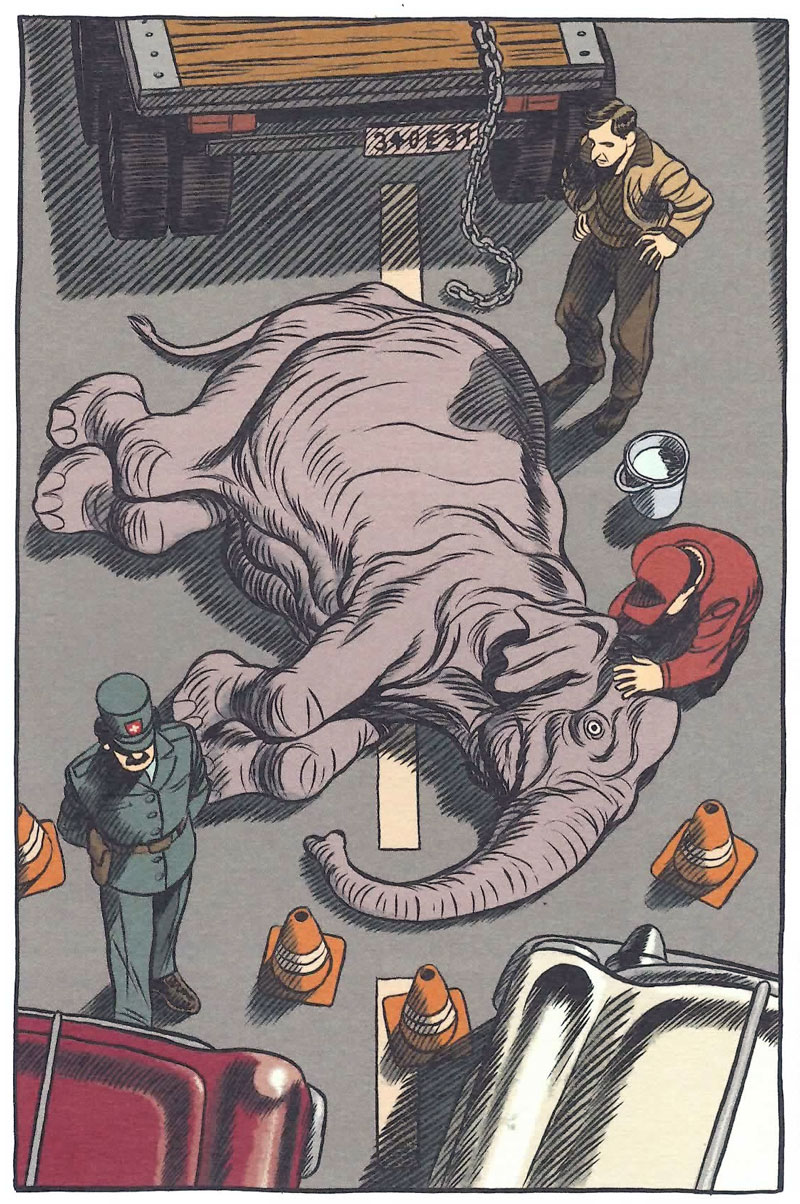

GILGI, ONE OF US By Irmgard Keun reviewed by Nathaniel Popkin
 GILGI, ONE OF US By Irmgard Keun (1931) in the first English translation by Geoff Wilkes Melville House, 210 pages Reviewed by Nathaniel Popkin You push through the small, enclosed, almost claustrophobic rooms at the head of “Léger: Modern Art and the Metropolis,” at the Philadelphia Museum of Art, like an exile from a provincial village, and there you are face to face with Léger’s masterwork The City. Now free of the repressive ties of the parochial, you’re not there yet. The City—the city—looms, an inscrutable machine. “At once spacious in its lateral spread and aggressively frontal, it offers ...
GILGI, ONE OF US By Irmgard Keun (1931) in the first English translation by Geoff Wilkes Melville House, 210 pages Reviewed by Nathaniel Popkin You push through the small, enclosed, almost claustrophobic rooms at the head of “Léger: Modern Art and the Metropolis,” at the Philadelphia Museum of Art, like an exile from a provincial village, and there you are face to face with Léger’s masterwork The City. Now free of the repressive ties of the parochial, you’re not there yet. The City—the city—looms, an inscrutable machine. “At once spacious in its lateral spread and aggressively frontal, it offers ...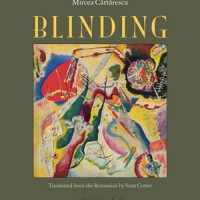
BLINDING: THE LEFT WING by Mircea Cărtărescu reviewed by Nathaniel Popkin

The Property by Rutu Modan reviewed by Amelia Moulis

Two Cities, Two Outsiders, Two Novels reviewed by Nathaniel Popkin
 THE STORY OF A NEW NAME by Elena Ferrante, trans. Ann Goldstein Europa Editions, 471 pages ELI, ELY by Ezekiel Tyrus Hardhead Press, 283 pages Reviewed by Nathaniel Popkin
THE STORY OF A NEW NAME by Elena Ferrante, trans. Ann Goldstein Europa Editions, 471 pages ELI, ELY by Ezekiel Tyrus Hardhead Press, 283 pages Reviewed by Nathaniel Popkin Two Cities, Two Outsiders, Two Novels
My thirteen-year-old daughter Lena got a hold of my review copy of Elena Ferrante’s new novel The Story of a New Name and the pencil stuck inside it for jotting notes in the margins. “Your journey starts now! Ready….go!” she wrote at the beginning of chapter 59 (of 125). On page 251, and then every so often to the end of the book, ...
IN THE COURTYARD OF THE KABBALIST by Ruchama King Feuerman reviewed by Nathaniel Popkin

THE MEHLIS REPORT by Rabee Jaber reviewed by Nathaniel Popkin
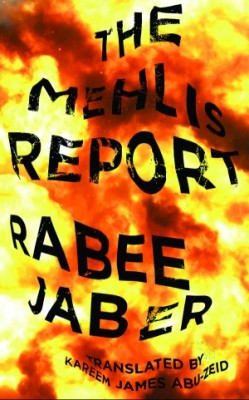 A Novel by Rabee Jaber, translated by Kareem James Abu-Zeid, reviewed by Nathaniel Popkin THE MEHLIS REPORT (New Directions Paperbacks)
A Novel by Rabee Jaber, translated by Kareem James Abu-Zeid, reviewed by Nathaniel Popkin THE MEHLIS REPORT (New Directions Paperbacks)
At night, I dream the city; I dream Baldwin’s—and Capote’s—alluring New York at mid-century; I dream Pamuk’s melancholic Istanbul of the same period; I dream Antunes’s desperate 1990s Lisbon and Nasr’s suffocating Tunis and Bolaño’s heretical 1970s Mexico City; I dream Zadie Smith’s London and Mercé Rodoreda’s Barcelona; I dream my own Philadelphia, which sometimes isn’t Philadelphia at all (it may be Brooklyn or Montreal). Now, I dream Rabee Jaber’s early 21st century Beirut; I dream the enduring disquiet, I ...
THE HARE by César Aira | reviewed by Nathaniel Popkin
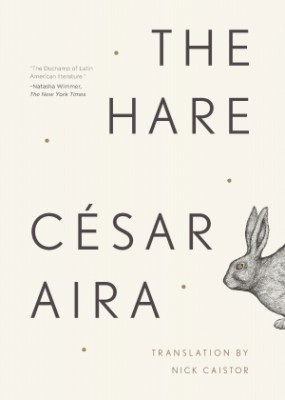 A Novel by César Aira, reviewed by Nathaniel Popkin THE HARE (New Directions Paperbacks)
A Novel by César Aira, reviewed by Nathaniel Popkin THE HARE (New Directions Paperbacks)
The writer César Aira has a charming trait (at least in the English language translations of his books published by New Directions): at the end of his novels, he inscribes the date he completed the work, at least so we are supposed to believe. For both The Miracle Cures of Dr. Aira, published in Katherine Silver’s English translation by New Directions last year, and The Hare, which New Directions brings out tomorrow translated by Nick Caistor, were apparently finished the same day, September 6, 1996. Could ...
TODAY IS THE LAST DAY OF THE REST OF YOUR LIFE by Ulli Lust reviewed by Tahneer Oksman
 A Graphic Novel by Ulli Lust, translated by Kim Thomson, reviewed by Tahneer Oksman
A Graphic Novel by Ulli Lust, translated by Kim Thomson, reviewed by Tahneer Oksman
TODAY IS THE LAST DAY OF THE REST OF YOUR LIFE (Fantagraphics Books)
Note: Lust’s memoir was edited and translated into English by comics visionary Kim Thompson, who passed away earlier this week. This book, along with countless others, is a tribute to his legacy. --T.O. Why weren’t more women dharma bums, taking trips across the country like the Kerouac’s and Cassady’s and Snyder’s of On the Road and beyond? Why weren’t more of them trekking up desolation mountains, sleeping in boxcars, bumming cigarettes and hash and ...
THE TRANSLATOR by Nina Schuyler reviewed by Nathaniel Popkin
 A Novel by Nina Schuyler, reviewed by Nathaniel Popkin
A Novel by Nina Schuyler, reviewed by Nathaniel Popkin
THE TRANSLATOR (Pegasus Books)
I noticed, earlier this week, that my friend Cristina Vezzaro had been posting on Facebook in Dutch. This shouldn’t have surprised me. Still, I wondered, “Have you added a new language?” “I took Nederlands while in Geneva 20 years ago. I am just trying to refresh what I knew and learn it better,” she replied. Vezzaro, after all, is a literary translator, who translates novels from the original German and French to Italian; but Cristina was born multi-lingual, in a part of Italy near Germany and Switzerland, and ...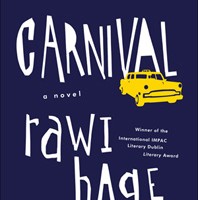
CARNIVAL by Rawi Hage | reviewed by Nathaniel Popkin
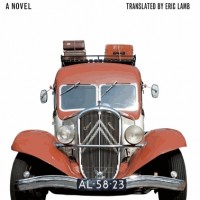
MY BEAUTIFUL BUS by Jacques Jouet, translated by Eric Lamb reviewed by Michelle Fost
 A Novel by Jacques Jouet, translated by Eric Lamb, reviewed by Michelle Fost MY BEAUTIFUL BUS (Dalkey Archive Press) Jacques Jouet’s My Beautiful Bus reminded me of an observation by a former teacher of mine, playwright Romulus Linney. In 2011, a good friend, whom I’d first met many years ago in Linney’s class at the University of Pennsylvania, e-mailed me with the sad news of his death. In his obituary, the New York Times quoted Linney, “My writing will add up to the sum total of me. The choices I make with my writing have a lot to do with ...
A Novel by Jacques Jouet, translated by Eric Lamb, reviewed by Michelle Fost MY BEAUTIFUL BUS (Dalkey Archive Press) Jacques Jouet’s My Beautiful Bus reminded me of an observation by a former teacher of mine, playwright Romulus Linney. In 2011, a good friend, whom I’d first met many years ago in Linney’s class at the University of Pennsylvania, e-mailed me with the sad news of his death. In his obituary, the New York Times quoted Linney, “My writing will add up to the sum total of me. The choices I make with my writing have a lot to do with ...